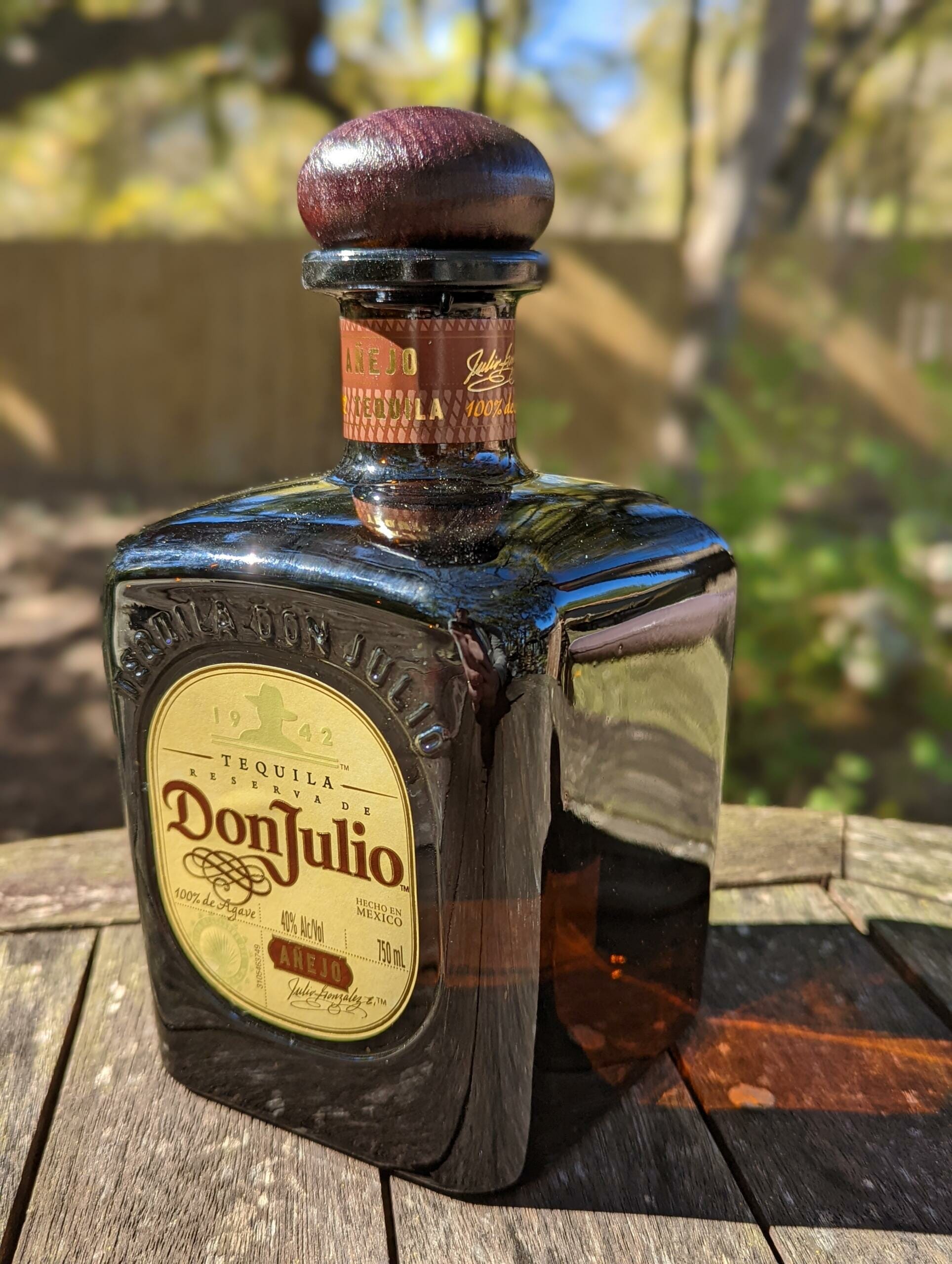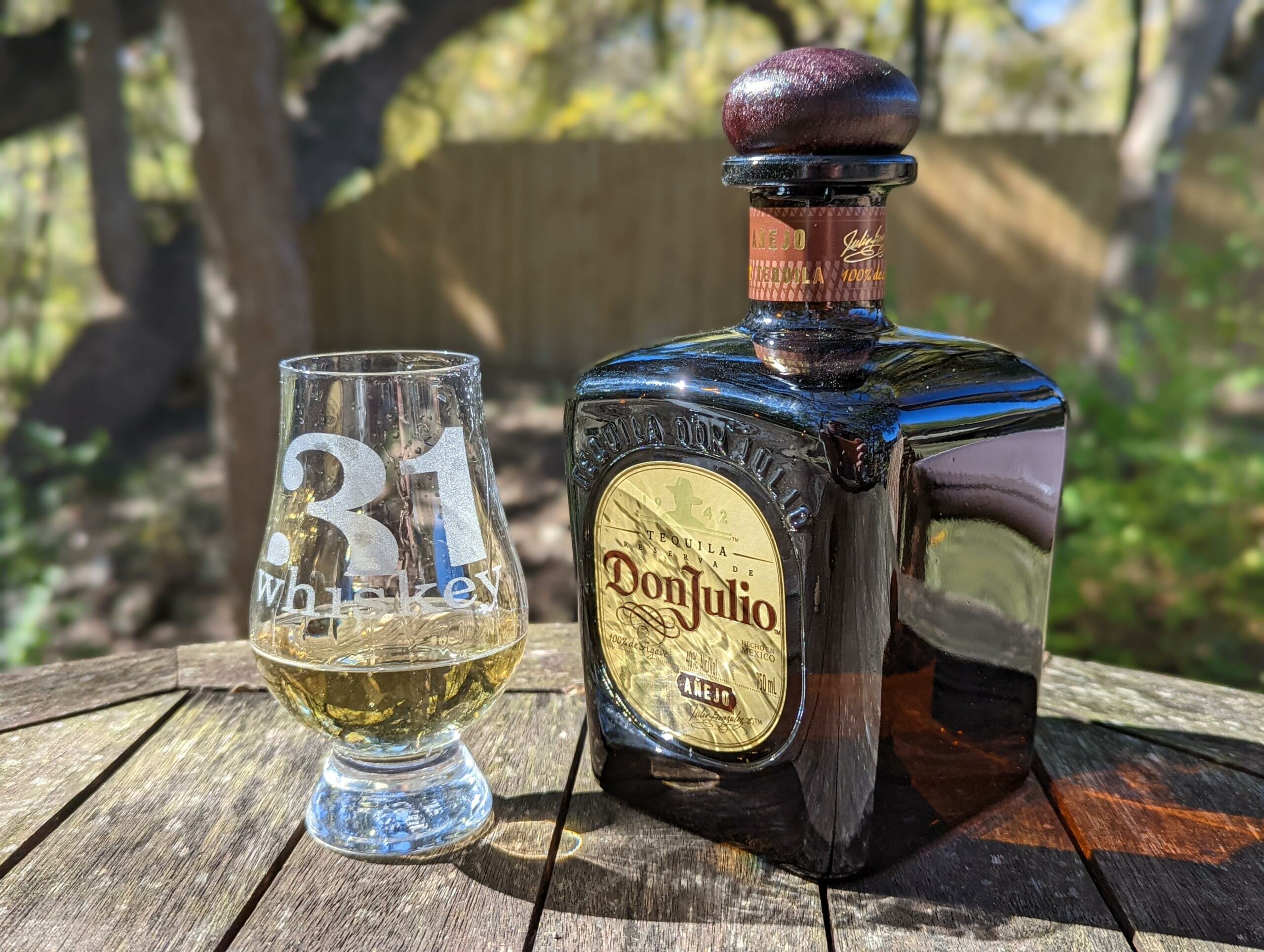
Given the choice, I’ll always reach for an anejo tequila before a blanco or reposado. I started in the whiskey world and have a taste for barrel aging notes, so when you add those to something earthy and delicious like a tequila, I tend to see that as a home run. The question for today is: did Don Julio, with its long history of tequila production, get it right for their version?
Advertisment
History
Don Julio González-Frausto Estrada was born in Jalisco, Mexico in 1925. Very early in his life, his father died and left the 15 year old son to become the sole breadwinner for his widowed mother and six siblings. He tried his hand at working on a farm but realized that the wages were simply too low to support his family, and so instead started his own business roaming around the country on horseback selling tequila from barrels.
After two years of success selling tequila, Julio took out a 20,000 peso loan and purchased his own distillery (dubbed “La Primavera”) to start producing his very own tequila instead of just selling other people’s products. He spent the next 40 years tinkering with the production process, making some tequila mainly for local consumption, and in 1985 the family owned business decided to launch the Don Julio brand of products for larger scale sale and distribution.
In 1999, the Seagrams corporation invested in the business and helped bring it to the United States. That ownership stake would eventually be purchased by the British spirits giant Diageo, who continues to own the brand to this day.
Product
- Learn More: What Is Tequila?
As a tequila, this starts with a crop of agave plants — specifically, blue agave plants that are grown on the family estate in the highlands of Jalisco, Mexico. The plants are harvested and have their leaves shaved, which leaves behind only the hard fibrous core. Don Julio uses only 100% blue weber agave plants for their production and does not add other sugars, as is common with cheaper production methods.
Don Julio uses a more traditional method of processing these cores: the company cuts them into smaller chunks and loads them into brick ovens for a couple days to roast. This softens the hard core, converts the fructans into fermentable sugars, and adds some unique flavors to the material. Once properly cooked, the agave cores are crushed to release the sugary juice, which is then mixed with water and fermented to create an alcoholic liquid.
The alcoholic liquid is distilled into tequila and, for this anejo version of their product, the spirit is then aged for eighteen months in American white oak barrels before being shipped out.
Packaging

This is an evolution on the bottle design we saw previously in the blanco and reposado versions. For this version, they’ve gone for the most square construction of the three. There is some rounding here though, like someone gently took a blowtorch to it and melted it just enough to be soft at the edges. The bottle sports a short neck with a flared lip and a wood and cork stopper.
I really don’t like that the bottle is colored. As mentioned in our reposado review, an opaque (or heavily tinted, in this case) bottle just prohibits you from seeing the contents inside — which feels like a major miss when the contents inside are aged and have a little color on the. And just like with the reposado, the contents inside this bottle are significantly lighter than the bottle itself. Again, annoyingly deceptive.
Advertisment
Neat

This might be an anejo, but it doesn’t look much darker than the reposado (which was already one of the lightest aged spirits I’ve come across). The spirit is a light hay color, lighter than pretty much any scotch I’ve tried.
Taking a whiff, though, you know for sure you’ve got a barrel aged spirit. The vanilla, caramel, toffee, and brown sugar notes that you’d expect from some time in a charred oak barrel are all here, nicely saturated and rounded. In fact, the barrel aging aromas here are strong enough that they overpower pretty all of the notes of the spirit to the point where the herbal and earthy agave note is the only thing that comes through.
What you get in the aroma here is pretty much the flavor profile, as well. If anything, the herbal agave note is even more muted here – it’s pretty much gone, in fact. The raw tequila flavors are already pretty poorly saturated in a Don Julio as it is, and they don’t get any better in this edition. All that’s left is the brown sugar and vanilla.
On Ice
This is a lot closer to what I was hoping for, actually.
The flavor profile here starts off better balanced than when taken neat or compared to what we saw when we put the reposado on ice. The notes from the raw tequila spirit are shining through and balancing nicely with the oak barrel aging components — that is, until the finish rolls around, at which point a good hit of bitterness sweeps in and pretty much ruins the experience.
This particular format will be a hard pass for me in the future, if I’m honest.
Cocktail (Margarita)
There’s something funky going on here and I’m not a fan.
I get that a margarita is a traditionally bitter cocktail, but this is above and beyond. To the point of being unpleasant, in fact. Add to that the fact that you aren’t getting any of the effects of the barrel aging at this point, and this is pretty much a waste of otherwise good tequila.
Advertisment
Overall Rating
This is sorely disappointing.
There’s so much opportunity here for the barrel aging notes to really shine, helping elevate the spirit and making something unique and distinctive. But instead what we get is a bitterness and unbalance that really throws off anything you try. Those barrel aging notes peel off pretty quickly, leaving just the herbal and earthy components behind in a cocktail, and at that point I’d much rather be sipping on the blanco version instead.
| Don Julio Anejo Produced By: Don Julio Production Location: MexicoClassification: Tequila Aging: Anejo Proof: 40% ABV Price: $54.99 / 750 ml Overall Rating:      |
Overall Rating: 1/5
Poorly saturated oak flavors and an unfortunate bitterness make me bitter about this spirit.
Advertisment
